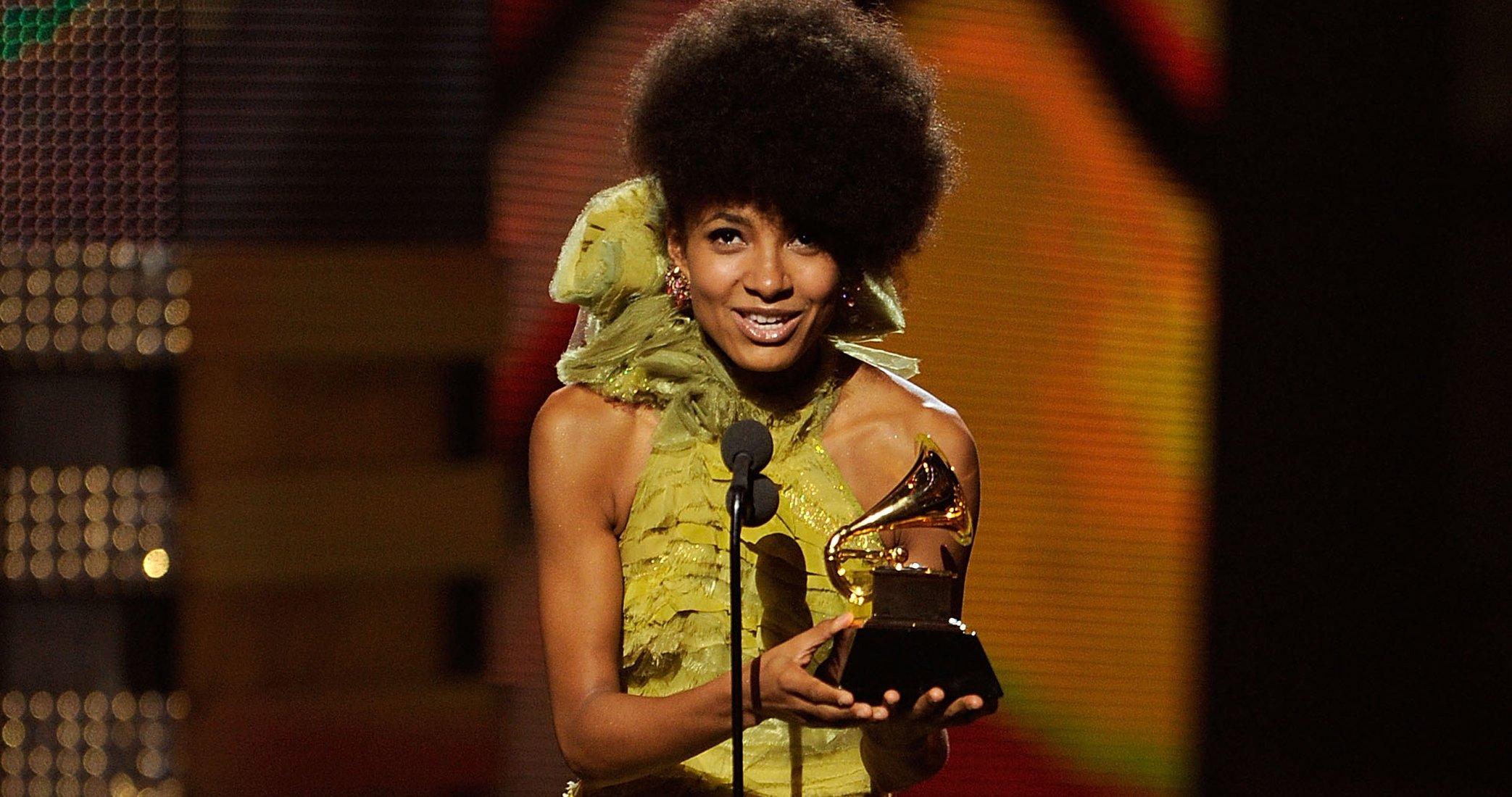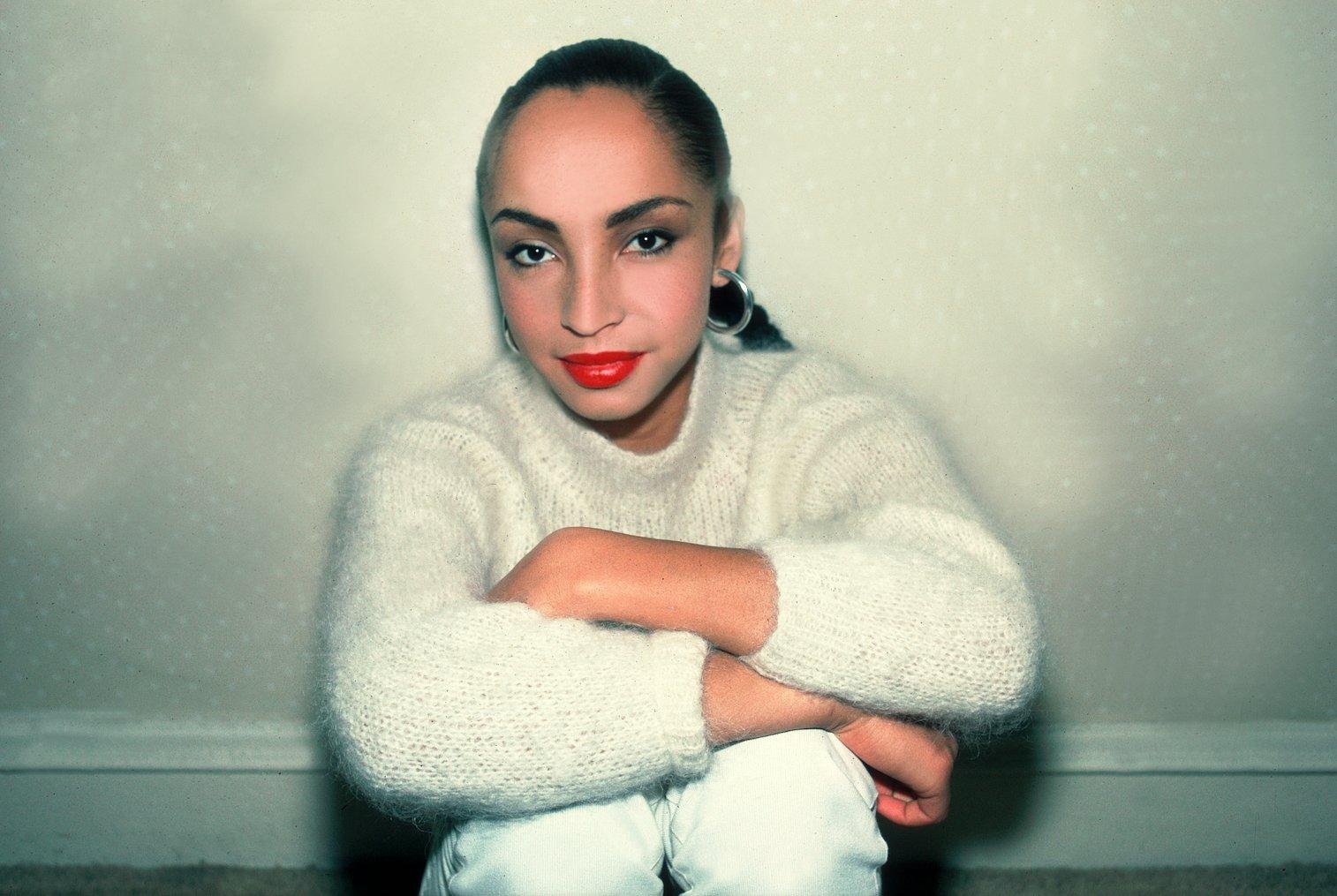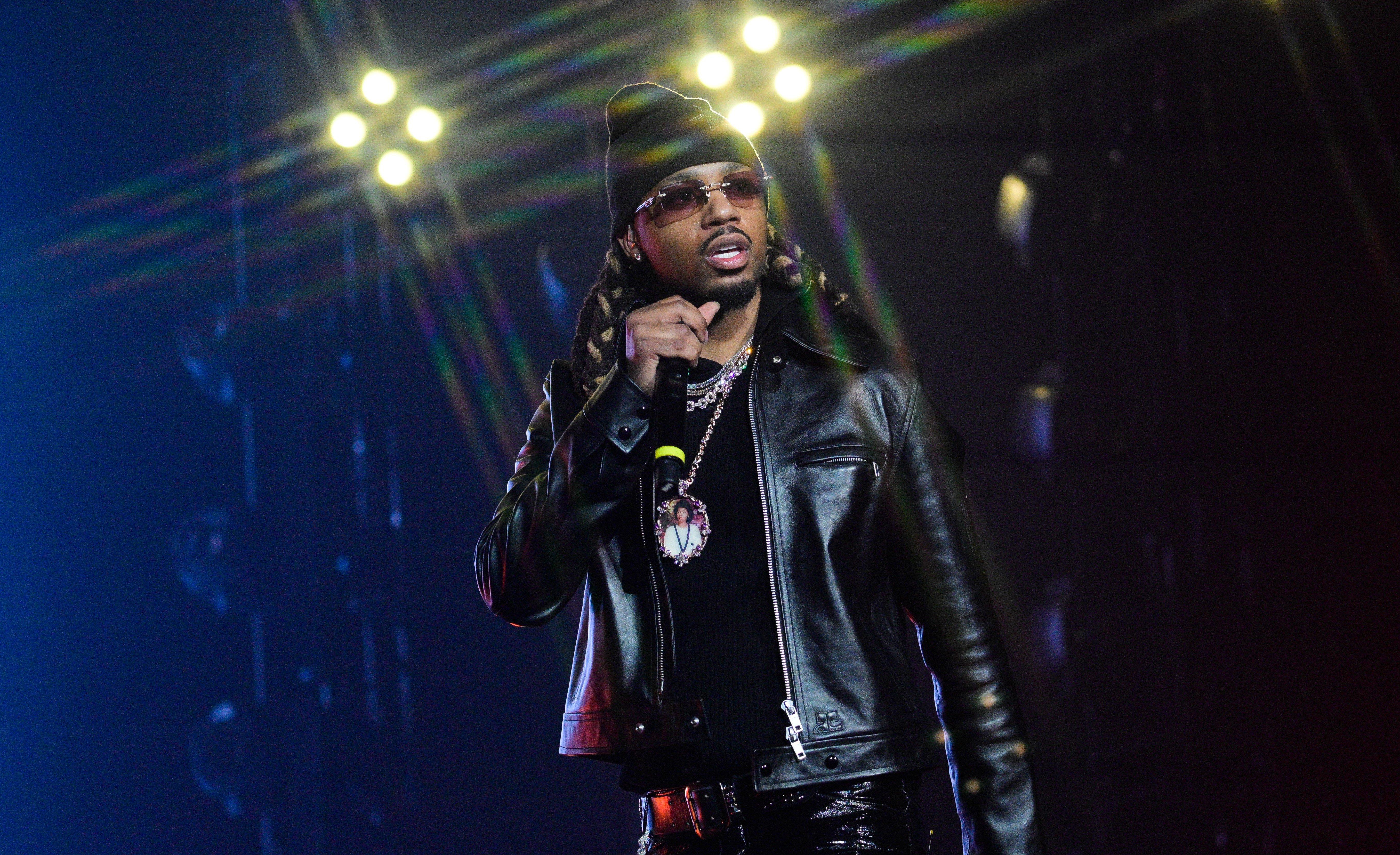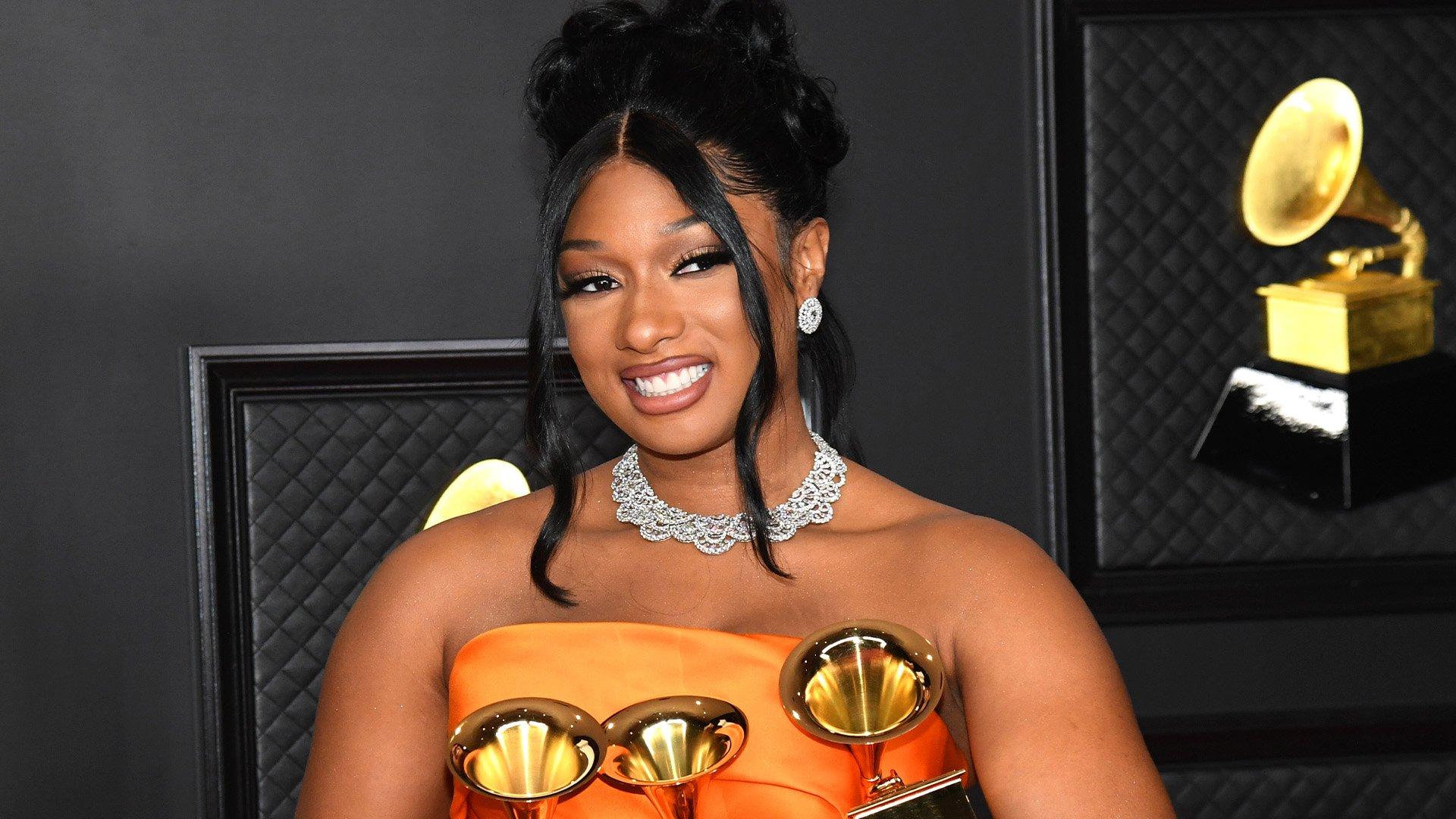Metro Boomin has spent more than a decade redefining rap music. The gloomy, 808-induced trap beats that flood radio airwaves and blare from nightclub speakers are a symbol of his influence. But now, the Atlanta-based superproducer is on one of his biggest musical runs to date.
In April, Metro released the second of two joint albums with Future, hinted at a third release this year, sold out a concert at the Kundalini Grand Pyramids in Egypt, and clinched the No. 1 spot on Billboard’s Hot 100 with "Like That" featuring Kendrick Lamar. He also delivered a first-of-its-kind instrumental diss aimed at Drake called "BBL Drizzy," accusing the Toronto rapper of going under the knife.
The diss was in response to Drake’s "Push Ups" and subsequent disses toward Kendrick Lamar. "Metro shut your hoe ass up and make some drums" he rapped. The verbal blow inspired Metro to release the hilarious instrumental, which he encouraged fans to rap on for a chance to win a free beat.
Months before the feud, Metro celebrated two nominations for Best Rap Album and Producer of the Year, Non-Classical at the 66th GRAMMY Awards. While he didn’t take home a coveted golden gramophone, the momentum has elevated his career to new heights.
Before the St. Louis-bred producer kicks off the We Trust You tour with Future on July 30, revisit 10 of Metro Boomin's biggest releases.
"Karate Chop" (2013)
A 19-year-old Metro crafted his first charting single right before making a life-changing move to Atlanta. With piercing synths and bubbly arpeggios, the song was the lead single for Future’s highly anticipated sophomore album, Honest.
But Metro, a freshman at Morehouse College at the time, wasn’t sold on its success. "I never really like it," Metro told XXL. "Then every time people would come into the studio, he would always play the record and I was like, ‘Why are you so stuck on this s—? We have way harder records.’"
But after cranking out a new mix on the original track, "Karate Chop" went on to become his first placement on a major label album. The remix with Lil Wayne further elevated the record and, by virtue, Metro’s profile as a musical craftsman.
"Jumpman" (2015)
Metro mastered the late-summer anthem in 2015 with "Jumpman." The song was the most notable hit from Drake and Future’s collaborative mixtape, What a Time to Be Alive, and went on to shut down bustling nightclubs and obscure strip joints. And while the record didn’t perform as well as other songs on this list, it secured Future his first Top 20 hit.
The song — which features Metro’s signature bass and a screeching raven sound effect — also saw a streaming boost after an Apple Music commercial featuring Taylor Swift rapping to the song. According to Adweek, the campaign helped generate a 431 percent increase in global sales
What makes "Jumpman" even more special is that a collab between Future, Metro, and Drake may never happen again. Reportedly, the duo is at odds with Drake because the OVO artist decided to link with 21 Savage on Her Loss instead of doing a follow-up project with Future.
"Father Stretch My Hands Pt. 1" (2016)
"Father Stretch My Hands Pt. 1" is the song that set Kanye West’s album, Life of Pablo, ablaze. Opening with a clip of gospel musician and singer T.L. Barrett’s Father I Stretch My Hands,” Metro’s signature producer tag kicks the record into full gear. The pulsating synthesizers and bouncy percussion match West’s raunchy and sexually explicit lyrics.
Metro’s production received significant praise, with several publications pointing to his contributions on end-of-year listings. And in the eight years since its release, "Father Stretch My Hands Pt. 1" has been certified six times platinum by the Recording Industry Association of America, making it one of Ye’s most-sold records of all time.
"Congratulations" (2016)
After the success of "White Iverson," a young Post Malone was on the hunt for the hottest producers in the rap game. He managed to land Metro, who worked with fellow producers Frank Dukes and the prolific Louis Bell on the triumphant trap record "Congratulations."
On a 2022 episode of the podcast "Full Send," Metro revealed that the celebratory song was made after watching the world’s greatest athletes eclipse historic feats of their own. "I remember the Olympics was on TV, and just how the music was sounding, it sounded like some champion s—," he said.
"Congratulations" marked Post Malone’s second Top 20 hit following his debut, "White Iverson." The song was certified diamond after totaling more than 11 million combined sales. Today, it remains one of Metro’s biggest achievements.
"Bad and Boujee" (2017)
Fueled by virality and a shoutout from Donald Glover at the 2017 Golden Globes, the Migos and Lil Uzi Vert’s "Bad and Boujee" landed Metro Boomin his first No. 1 Billboard hit as a producer.
The song has every element Metro fans have grown to love: moody keys, hard-hitting bass, and plenty of room for the artists’ adlibs to pierce through the track.
Two months before its eventual ascension, the song had a steep hill to climb atop the Billboard charts. But Metro’s production and the chemistry between Quavo, Offset, and Uzi helped the record shoot up to its rightful place. It continues to garner praise In the years since its 2016 release, too. It was ranked No. 451 on Rolling Stone’s "500 Greatest Songs of All Time" list
"Mask Off" (2017)
When "Mask Off" dropped in 2017, it scorched the Billboard charts. Hip-hop was flirting with flutes (as heard on songs like Drake’s "Portland" and Kodak Black’s "Tunnel Vision" — another Metro-produced beat) — but "Mask Off" stands out as the biggest song of the short-lived era.
Metro infused jazz-like undertones to perfectly meld the flute lick into the dark and mystic beat. The record led to the remix with Kendrick Lamar, with his verse breathing new life into the already-seismic hit. It’s now certified nine times platinum.
Years after the song’s release, Future said "Mask Off" initially put radio programmers in disarray. In his East Atlanta rapper’s Apple Music documentary The WIZRD, he revealed that the song dropped before Carlton WIlliams’ "Prison Song" sample was officially cleared. "Out of all the songs, ‘Mask Off’ wasn’t even legit," he said. "The s— was on the radio, they’re thinking it’s not a sample, but it got so big they were like, ‘It’s a sample.’"
"Heartless" (2019)
The Weeknd's "Heartless" is a pop and electro-clash classic that fires on all cylinders. The visuals are atmospheric, the lyrics are ultra-stimulating, and the production — partly handled by Metro — makes for a lasting club banger.
The leading single for The Weeknd’s fourth studio album, After Hours, topped the Billboard charts. It marked the Toronto-born crooner’s fourth No. 1 hit and unveiled the depths of Metro’s musical arsenal.
Metro produced four tracks on After Hours: "Faith," "Escape from L.A.," "Until I Bleed Out" and "Heartless." On the latter and in his other collaborations with The Weeknd, James Blake, and Solange, Metro’s creative sorcery was tested. He proved, once again, that he could generate a hit outside the confines of trap music.
"Creepin’" (2022)
After a solid outing on his first album Not All Heroes Wear Capes, Metro returned with another series of hard-hitting records. His second solo venture, Heroes & Villains, featured John Legend, Don Tolliver, Travis Scott, and other premiere artists. But the biggest song to come out of the star-studded lineup was "Creepin’" featuring 21 Savage and The Weeknd.
The only single to Metro’s second solo album struck sonic gold. The Weeknd’s flowy vocals overlay the silky and harmonic record, which transitions to a more trap-induced beat once 21 Savage’s verse kicks in. The remake of Mario Winans’ "I Don’t Wanna Know" was a notable departure from Metro’s past singles, which heavily lean on his trap roots. But it still managed to connect with his audience – and even beyond it. "Creepin" peaked at No. 3 on Billboard, which was Metro’s highest-charting solo record up until that point.
Spider-Man: Across The Spider-Verse (2023)
Following the success of "Creepin’" and his other smash singles, Metro extended his creative powers to the film world. He was given the green light to executive produce the soundtrack for Sony’s Spider-Man: Across the Spider-Verse.
Metro Boomin told Indie Wire that he crafted songs from rough animations and selected scenes "just to get in the world and the story of Miles [Morales] and what he’s going through," He even exchanged phone calls and texts with the film’s composer Daniel Pemberton to ensure the soundtrack and score were on the same accord.
From the classical serenade "Am I Dreaming" to the Latin swing of "Silk & Cologne" and the Timbaland-stomping "Nas Morales," the result was an equally transformative musical experience. Each record ranged in musicality and tone while beautifully complementing the vibrant animated superhero flick.
"Like That" (2024)
"Like That" is easily one of the best beats in Metro’s catalog, and may end up being one of the most memorable. Samples from Rodney O & Joe Cooley’s "Everlasting Bass" and Eazy-E’s 1989 classic "Eazy-Duz-It" shaped the bouncy trap beat, sinister synths, and spine-chilling baseline. But Kendrick Lamar’s verse turned it into a heat-seeking missile.
With the song’s thunderous bass and rapid hi-hats in the background, Kendrick dissed J. Cole and Drake for their recent claims of rap supremacy, particularly on 2023’s "First Person Shooter." The lyrical nuke sparked the Civil War-style rap feud, which led to a seven-song exchange between Kendrick and Drake.
The initial musical blow made the genre stand still. It also led to the massive success of the record, which notched Future and Metro another No. 1 hit song. It also helped the pair’s album, We Don’t Trust You, claim the top spot on the Billboard 200 albums chart.
Inside The Metro-Verse: How Metro Boomin Went From Behind-The-Scenes Mastermind To Rap's Most In-Demand Producer















